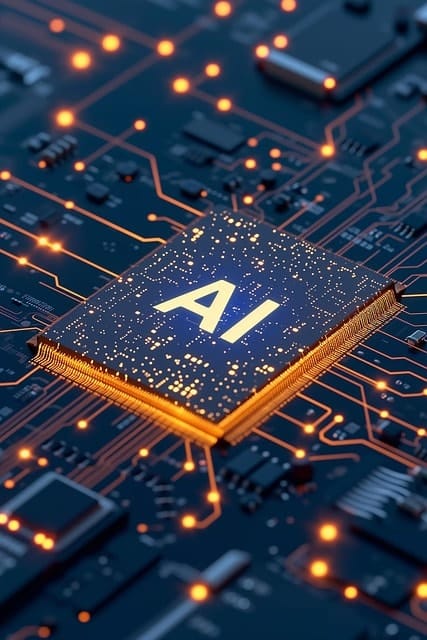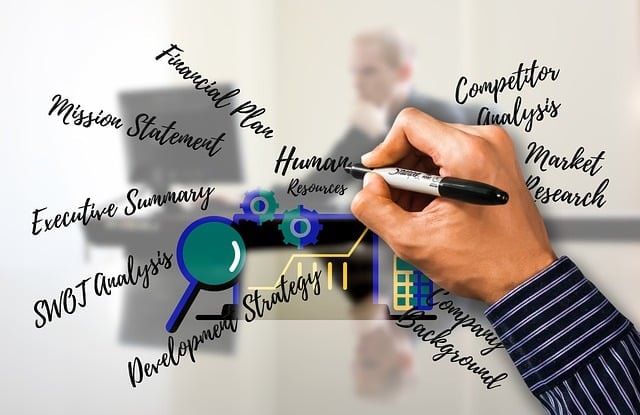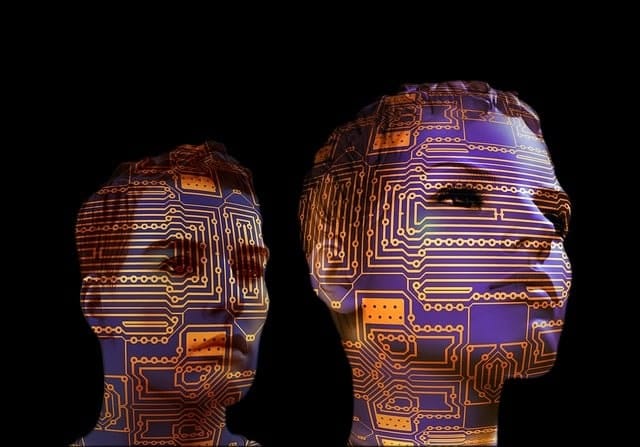Key Takeaways:
- AI's Evolution: By 2025, AI will have significantly transformed various sectors, enhancing operational efficiency and human creativity.
- Ethical and Privacy Concerns: As AI systems become more sophisticated, ethical considerations and data privacy will be paramount.
- AI's Impact on Daily Life: AI will continue to integrate into daily life, offering tangible value and raising concerns about its influence on society.
Introduction to AI's Future
Artificial Intelligence (AI) is not just a buzzword; it's a transformative force reshaping industries and daily life. As we look towards 2025, the fate of artificial intelligence is a topic of intense speculation and interest. AI systems are evolving at a breakneck speed, promising groundbreaking innovations that could redefine our world. From self-driving cars to AI-powered automation, the potential applications are vast and varied.
The journey of AI technology has been marked by significant milestones, each contributing to its current state. As AI continues to evolve, it is crucial to understand the underlying technology that powers these systems. Machine learning, data science, and neural networks are just a few of the components driving AI's progress. These technologies enable AI to solve complex problems and enhance customer experiences, making them indispensable tools for many organizations.

AI Systems and Their Evolution
AI systems have come a long way since their inception. Initially, AI was limited to performing specific tasks, but today, it has the capability to learn and adapt. This evolution is largely due to advancements in machine learning and data science, which have enabled AI to process vast amounts of unstructured data. As AI evolves, it is becoming more adept at solving complex problems, offering solutions that were once thought impossible.
The future of AI lies in its ability to integrate seamlessly into various sectors. AI-powered automation is already revolutionizing industries by improving operational efficiency and reducing costs. In the next decade, AI is expected to play an even more significant role in decision-making processes, providing relevant information and insights that can drive business success. As AI continues to evolve, its impact on society will be profound, offering both opportunities and challenges.

Generative AI: A Game Changer
Generative AI is one of the most exciting developments in the field of artificial intelligence. This technology has the potential to revolutionize industries by creating new content and solutions. From generating realistic images to composing music, generative AI is pushing the boundaries of what is possible. As AI continues to evolve, generative models will become more sophisticated, offering even greater potential for innovation.
The impact of generative AI extends beyond creative industries. In the field of software development, for example, AI-powered code generation tools are streamlining the development process, allowing developers to focus on more complex tasks. This not only enhances productivity but also opens up new possibilities for innovation. As AI continues to evolve, generative AI will play a crucial role in shaping the future of technology.
AI and Human Creativity
AI's impact on human creativity is a topic of much debate. While some fear that AI will replace human creativity, others see it as a tool that can enhance it. AI systems are capable of generating new ideas and solutions, but they lack the emotional depth and intuition that humans possess. As AI continues to evolve, it will be important to strike a balance between leveraging AI's capabilities and preserving human creativity.
In the creative industries, AI is already being used to augment human creativity. From music composition to visual arts, AI-powered tools are helping artists explore new possibilities and push the boundaries of their craft. As AI continues to evolve, it will offer even more opportunities for collaboration between humans and machines, leading to new forms of creative expression.

AI Ethics and Privacy Concerns
As AI systems become more sophisticated, ethical considerations and data privacy are becoming increasingly important. AI has the potential to raise concerns about algorithmic bias and the misuse of personal data. It is crucial to address these issues to ensure that AI is used responsibly and ethically. As AI continues to evolve, it will be important to establish guidelines and regulations that protect individuals' rights and privacy.
Data privacy is a major concern in the age of AI. With AI systems processing massive amounts of data, there is a risk of sensitive information being misused or exposed. It is essential to implement robust security measures to protect data and ensure that AI is used in a way that respects individuals' privacy. As AI continues to evolve, addressing these concerns will be critical to its success.
AI in Healthcare: Precision Medicine and Patient Care
AI is revolutionizing healthcare by enabling precision medicine and improving patient care. AI-powered tools are being used to analyze patient data and provide personalized treatment plans. This not only improves patient outcomes but also enhances the efficiency of healthcare systems. As AI continues to evolve, it will play an even more significant role in disease detection and treatment.
The potential of AI in healthcare extends beyond patient care. AI is also being used to streamline administrative processes, reducing costs and improving operational efficiency. From scheduling appointments to managing patient records, AI-powered automation is transforming the way healthcare is delivered. As AI continues to evolve, it will offer even more opportunities to improve healthcare systems and enhance patient care.

AI in Transportation: Self-Driving Cars and Beyond
Self-driving cars are one of the most visible examples of AI's impact on transportation. These vehicles use AI systems to navigate roads and make decisions in real-time, offering a glimpse into the future of transportation. As AI continues to evolve, self-driving cars will become more common, offering a safer and more efficient mode of transportation.
The impact of AI on transportation extends beyond self-driving cars. AI is also being used to optimize logistics and supply chain management, improving efficiency and reducing costs. From route optimization to predictive maintenance, AI-powered tools are transforming the transportation industry. As AI continues to evolve, it will offer even more opportunities to improve transportation systems and enhance mobility.
AI in Finance: Fraud Prevention and Decision Making
AI is transforming the finance industry by enhancing fraud prevention and improving decision-making processes. AI-powered tools are being used to analyze vast amounts of data and identify patterns that indicate fraudulent activity. This not only helps prevent fraud but also improves the efficiency of financial institutions. As AI continues to evolve, it will play an even more significant role in enhancing security and reducing risks.
The potential of AI in finance extends beyond fraud prevention. AI is also being used to improve decision-making processes by providing relevant information and insights. From investment strategies to risk management, AI-powered tools are helping financial institutions make more informed decisions. As AI continues to evolve, it will offer even more opportunities to improve financial systems and enhance decision-making processes.

AI in Education: Lifelong Learning and Personalized Learning
AI is revolutionizing education by enabling lifelong learning and personalized learning experiences. AI-powered tools are being used to analyze student data and provide personalized learning plans. This not only improves student outcomes but also enhances the efficiency of educational systems. As AI continues to evolve, it will play an even more significant role in shaping the future of education.
The potential of AI in education extends beyond personalized learning. AI is also being used to streamline administrative processes, reducing costs and improving operational efficiency. From scheduling classes to managing student records, AI-powered automation is transforming the way education is delivered. As AI continues to evolve, it will offer even more opportunities to improve educational systems and enhance learning experiences.
AI in Retail: Enhancing Customer Experiences
AI is transforming the retail industry by enhancing customer experiences and improving operational efficiency. AI-powered tools are being used to analyze customer data and provide personalized recommendations. This not only improves customer satisfaction but also increases sales and revenue. As AI continues to evolve, it will play an even more significant role in shaping the future of retail.
The potential of AI in retail extends beyond customer experiences. AI is also being used to optimize supply chain management and inventory control, reducing costs and improving efficiency. From demand forecasting to automated restocking, AI-powered tools are transforming the retail industry. As AI continues to evolve, it will offer even more opportunities to improve retail systems and enhance customer experiences.
AI in Manufacturing: Automation and Efficiency
AI is revolutionizing the manufacturing industry by enabling automation and improving efficiency. AI-powered tools are being used to optimize production processes and reduce costs. This not only improves operational efficiency but also enhances product quality. As AI continues to evolve, it will play an even more significant role in shaping the future of manufacturing.
The potential of AI in manufacturing extends beyond automation. AI is also being used to improve supply chain management and inventory control, reducing costs and improving efficiency. From predictive maintenance to quality control, AI-powered tools are transforming the manufacturing industry. As AI continues to evolve, it will offer even more opportunities to improve manufacturing systems and enhance efficiency.

AI in Agriculture: Precision Farming and Sustainability
AI is transforming the agriculture industry by enabling precision farming and improving sustainability. AI-powered tools are being used to analyze soil and crop data and provide personalized recommendations. This not only improves crop yields but also enhances the efficiency of agricultural systems. As AI continues to evolve, it will play an even more significant role in shaping the future of agriculture.
The potential of AI in agriculture extends beyond precision farming. AI is also being used to optimize supply chain management and reduce waste, improving sustainability and reducing costs. From predictive analytics to automated harvesting, AI-powered tools are transforming the agriculture industry. As AI continues to evolve, it will offer even more opportunities to improve agricultural systems and enhance sustainability.
AI in Energy: Optimization and Sustainability
AI is revolutionizing the energy industry by enabling optimization and improving sustainability. AI-powered tools are being used to analyze energy data and provide personalized recommendations. This not only improves energy efficiency but also enhances the sustainability of energy systems. As AI continues to evolve, it will play an even more significant role in shaping the future of energy.
The potential of AI in energy extends beyond optimization. AI is also being used to improve supply chain management and reduce waste, improving sustainability and reducing costs. From predictive analytics to automated energy management, AI-powered tools are transforming the energy industry. As AI continues to evolve, it will offer even more opportunities to improve energy systems and enhance sustainability.
AI in Entertainment: Content Creation and Personalization
AI is transforming the entertainment industry by enabling content creation and improving personalization. AI-powered tools are being used to analyze audience data and provide personalized recommendations. This not only improves audience satisfaction but also increases engagement and revenue. As AI continues to evolve, it will play an even more significant role in shaping the future of entertainment.
The potential of AI in entertainment extends beyond content creation. AI is also being used to optimize production processes and reduce costs, improving efficiency and enhancing creativity. From automated editing to personalized content delivery, AI-powered tools are transforming the entertainment industry. As AI continues to evolve, it will offer even more opportunities to improve entertainment systems and enhance audience experiences.
AI in Security: Enhancing Protection and Reducing Risks
AI is revolutionizing the security industry by enhancing protection and reducing risks. AI-powered tools are being used to analyze security data and identify potential threats. This not only improves security but also reduces risks and enhances operational efficiency. As AI continues to evolve, it will play an even more significant role in shaping the future of security.
The potential of AI in security extends beyond threat detection. AI is also being used to improve decision-making processes and enhance operational efficiency. From predictive analytics to automated response systems, AI-powered tools are transforming the security industry. As AI continues to evolve, it will offer even more opportunities to improve security systems and reduce risks.
AI in Communication: Enhancing Connectivity and Collaboration
AI is transforming the communication industry by enhancing connectivity and improving collaboration. AI-powered tools are being used to analyze communication data and provide personalized recommendations. This not only improves communication efficiency but also enhances collaboration and productivity. As AI continues to evolve, it will play an even more significant role in shaping the future of communication.
The potential of AI in communication extends beyond connectivity. AI is also being used to improve decision-making processes and enhance operational efficiency. From automated translation to personalized communication strategies, AI-powered tools are transforming the communication industry. As AI continues to evolve, it will offer even more opportunities to improve communication systems and enhance collaboration.
AI in Real Estate: Enhancing Property Management and Sales
AI is revolutionizing the real estate industry by enhancing property management and improving sales. AI-powered tools are being used to analyze property data and provide personalized recommendations. This not only improves property management efficiency but also enhances sales and revenue. As AI continues to evolve, it will play an even more significant role in shaping the future of real estate.
The potential of AI in real estate extends beyond property management. AI is also being used to optimize sales processes and reduce costs, improving efficiency and enhancing customer experiences. From predictive analytics to automated property listings, AI-powered tools are transforming the real estate industry. As AI continues to evolve, it will offer even more opportunities to improve real estate systems and enhance property management.
AI in Law: Enhancing Legal Processes and Decision Making
AI is transforming the legal industry by enhancing legal processes and improving decision-making. AI-powered tools are being used to analyze legal data and provide personalized recommendations. This not only improves legal efficiency but also enhances decision-making and reduces costs. As AI continues to evolve, it will play an even more significant role in shaping the future of law.
The potential of AI in law extends beyond legal processes. AI is also being used to improve decision-making processes and enhance operational efficiency. From predictive analytics to automated legal research, AI-powered tools are transforming the legal industry. As AI continues to evolve, it will offer even more opportunities to improve legal systems and enhance decision-making.
AI in Marketing: Enhancing Strategies and Customer Engagement
AI is revolutionizing the marketing industry by enhancing strategies and improving customer engagement. AI-powered tools are being used to analyze marketing data and provide personalized recommendations. This not only improves marketing efficiency but also enhances customer engagement and increases revenue. As AI continues to evolve, it will play an even more significant role in shaping the future of marketing.
The potential of AI in marketing extends beyond strategies. AI is also being used to optimize customer engagement and reduce costs, improving efficiency and enhancing customer experiences. From predictive analytics to automated marketing campaigns, AI-powered tools are transforming the marketing industry. As AI continues to evolve, it will offer even more opportunities to improve marketing systems and enhance customer engagement.
AI in Human Resources: Enhancing Recruitment and Employee Engagement
AI is transforming the human resources industry by enhancing recruitment and improving employee engagement. AI-powered tools are being used to analyze HR data and provide personalized recommendations. This not only improves recruitment efficiency but also enhances employee engagement and reduces costs. As AI continues to evolve, it will play an even more significant role in shaping the future of human resources.
The potential of AI in human resources extends beyond recruitment. AI is also being used to optimize employee engagement and reduce costs, improving efficiency and enhancing employee experiences. From predictive analytics to automated HR processes, AI-powered tools are transforming the human resources industry. As AI continues to evolve, it will offer even more opportunities to improve HR systems and enhance employee engagement.
AI in Supply Chain: Enhancing Efficiency and Reducing Costs
AI is revolutionizing the supply chain industry by enhancing efficiency and reducing costs. AI-powered tools are being used to analyze supply chain data and provide personalized recommendations. This not only improves supply chain efficiency but also reduces costs and enhances operational efficiency. As AI continues to evolve, it will play an even more significant role in shaping the future of supply chain management.
The potential of AI in supply chain extends beyond efficiency. AI is also being used to optimize supply chain processes and reduce costs, improving efficiency and enhancing customer experiences. From predictive analytics to automated supply chain management, AI-powered tools are transforming the supply chain industry. As AI continues to evolve, it will offer even more opportunities to improve supply chain systems and enhance efficiency.
AI in Construction: Enhancing Project Management and Safety
AI is transforming the construction industry by enhancing project management and improving safety. AI-powered tools are being used to analyze construction data and provide personalized recommendations. This not only improves project management efficiency but also enhances safety and reduces costs. As AI continues to evolve, it will play an even more significant role in shaping the future of construction.
The potential of AI in construction extends beyond project management. AI is also being used to optimize safety processes and reduce costs, improving efficiency and enhancing safety. From predictive analytics to automated construction processes, AI-powered tools are transforming the construction industry. As AI continues to evolve, it will offer even more opportunities to improve construction systems and enhance project management.
AI in Logistics: Enhancing Efficiency and Reducing Costs
AI is revolutionizing the logistics industry by enhancing efficiency and reducing costs. AI-powered tools are being used to analyze logistics data and provide personalized recommendations. This not only improves logistics efficiency but also reduces costs and enhances operational efficiency. As AI continues to evolve, it will play an even more significant role in shaping the future of logistics.
The potential of AI in logistics extends beyond efficiency. AI is also being used to optimize logistics processes and reduce costs, improving efficiency and enhancing customer experiences. From predictive analytics to automated logistics management, AI-powered tools are transforming the logistics industry. As AI continues to evolve, it will offer even more opportunities to improve logistics systems and enhance efficiency.
AI in Tourism: Enhancing Customer Experiences and Reducing Costs
AI is transforming the tourism industry by enhancing customer experiences and reducing costs. AI-powered tools are being used to analyze tourism data and provide personalized recommendations. This not only improves customer experiences but also reduces costs and enhances operational efficiency. As AI continues to evolve, it will play an even more significant role in shaping the future of tourism.
The potential of AI in tourism extends beyond customer experiences. AI is also being used to optimize tourism processes and reduce costs, improving efficiency and enhancing customer experiences. From predictive analytics to automated tourism management, AI-powered tools are transforming the tourism industry. As AI continues to evolve, it will offer even more opportunities to improve tourism systems and enhance customer experiences.

Summary
The fate of artificial intelligence in 2025 is a topic of great interest and speculation. As AI continues to evolve, it will play an increasingly significant role in shaping various industries and daily life. From enhancing operational efficiency to improving customer experiences, AI offers a wealth of opportunities for innovation and growth. However, it also raises important ethical and privacy concerns that must be addressed to ensure its responsible and ethical use. As we look towards the future, it is clear that AI will continue to be a driving force in shaping the world around us.
Your Friend,
Wade

1. What are the potential risks of AI in 2025?
AI poses several potential risks, including algorithmic bias, data privacy concerns, and the misuse of AI by malicious actors. It is crucial to address these risks by implementing robust security measures and establishing guidelines and regulations that protect individuals' rights and privacy.
2. How will AI impact daily life in 2025?
AI will continue to integrate into daily life, offering tangible value and improving various aspects of daily life. From enhancing customer experiences to improving operational efficiency, AI will play a significant role in shaping the future of daily life.
3. What are the ethical considerations of AI in 2025?
As AI systems become more sophisticated, ethical considerations are becoming increasingly important. It is crucial to address issues such as algorithmic bias and data privacy to ensure that AI is used responsibly and ethically. Establishing guidelines and regulations that protect individuals' rights and privacy will be critical to the success of AI in 2025.









